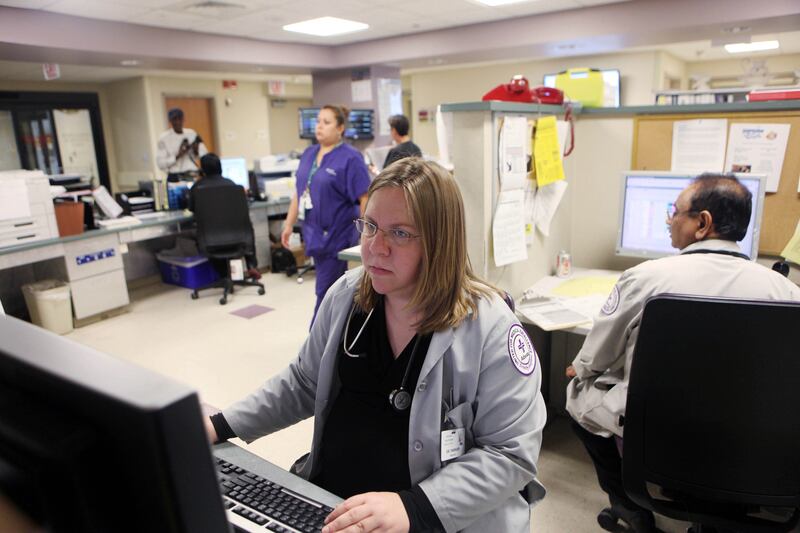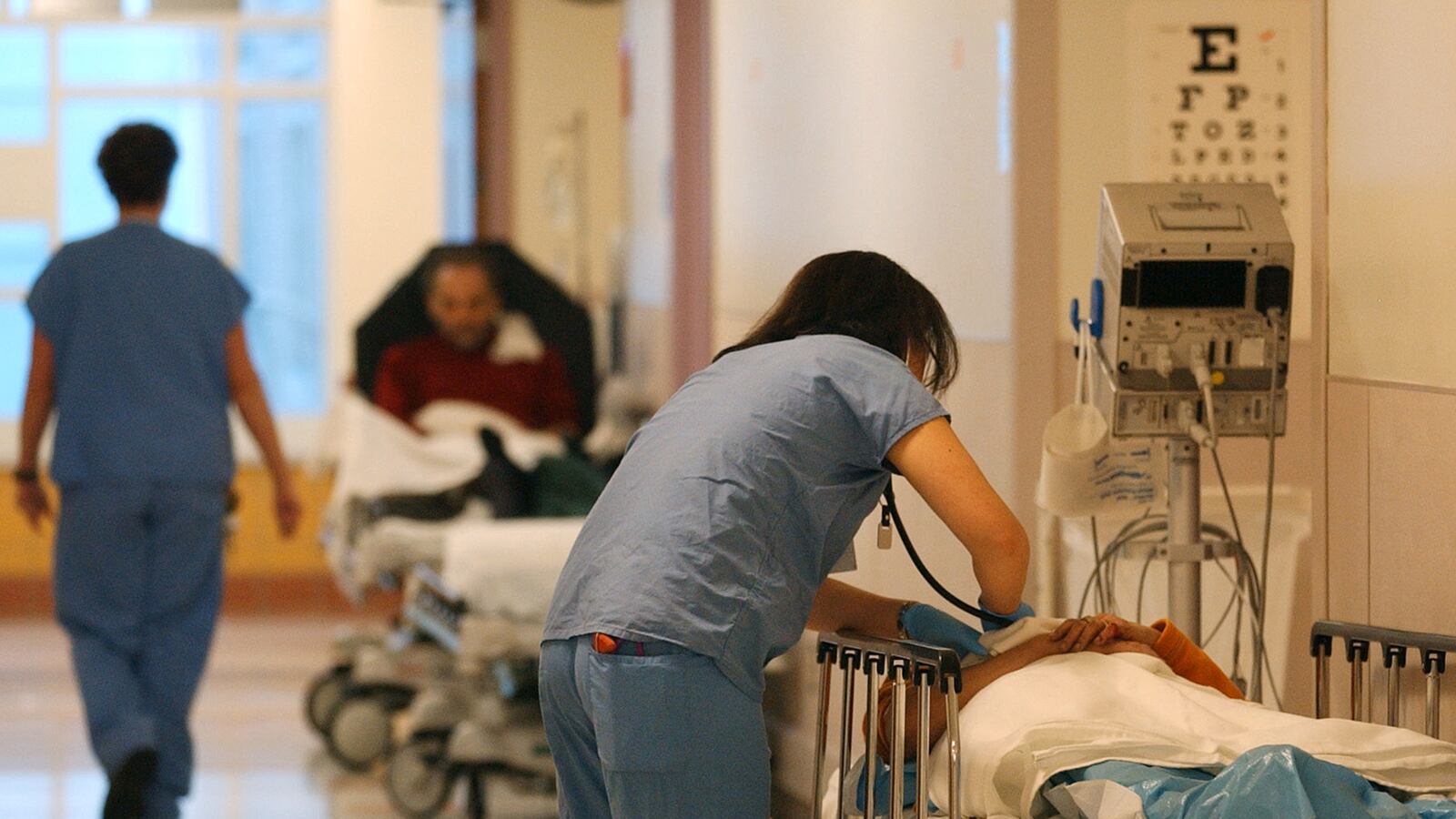When I was 36 weeks pregnant, my nurse practitioner told me I had a urinary tract infection and prescribed an antibiotic. I didn’t have symptoms, so I didn’t believe her. But it was Friday at 4:30 and I got the feeling that she was in a hurry. “You increase your risk of miscarriage if you don’t treat,” she said as she dashed off a prescription.

At a follow-up appointment three days later, the doctor discovered that this urinary tract infection was not an infection at all, but preeclampsia—a condition that can cause stillbirth and affects the mother’s brain and kidneys. I was losing massive amounts of protein in the urine, which the nurse interpreted as an infection. But I didn’t just have failing kidneys, I also had neurologic symptoms. I was obviously trembling and confused. The nurse missed it. The doctor didn’t. I was rushed into a cesarian section and delivered a healthy baby girl. But if my follow up appointment had been a few days later, I might have had a seizure and died.
Despite my personal experience with one nurse’s questionable competence, as a physician I welcome nurses into the ranks of primary-care providers. It’s not because I think they’re so caring (mine seemed to care more about going home); it’s not because I think they’re so excellent (see above); it’s because there are simply too few primary-care doctors to meet demand. During the next few years, thanks to President Obama’s Affordable Care Act, some 36 million newly insured patients will flood into the health care market. By 2015, according to the Association of American Medical Colleges, the United States is expected to have a shortfall of 62,000 physicians—and during subsequent years that shortfall will only get worse.
Due in part to the impending shortage, the Institute of Medicine (IOM) proposed that nurse practitioners provide primary care to bridge the gap in physician coverage. But the concern is—given my experience and that of other patients—will it work? Are nurses good enough?
Certainly nurses believe they are fully up to the task. Last week, The New England Journal of Medicine published a study stating that nurses believe they should have the same privileges and pay as physicians. Nurses also believe they will provide better and safer care. Not just good care. Not equal care. Better care. Safer care.
Doctors, of course, would disagree. Even though a well-respected meta-analysis has shown no appreciable differences in health outcomes between doctors and nurses, many physicians worry that nurses may overlook serious illness. It certainly happened to me. But I would argue that that’s the nature of medical care. After all, doctors are famous for making mistakes. I can easily imagine my story flipped on its head: a harried and exhausted doctor dismisses the twitching, overweight pregnant lady—who would be saved three days later by the nurse who had the time and energy to care.
What’s really happening is that American physicians are overtrained for run-of-the-mill primary care. Of course nurses can do it. I sometimes joke that a properly motivated high-school student could do it with a smartphone and a checklist. The current standard of care is medicine-by-protocol. The work is ceaseless and routine to the point of tedium—and almost half of primary-care physicians are burnt out. Nurses are probably quite justified in criticizing what they see. But that doesn’t help physicians accept them.
Especially since, generally speaking, a lot of doctors are still chafing from the treatment they received at the hands of these nurses during residency training.
The rancor between our two professions is heightened by an obvious bias toward nurses in the media. It makes a good story to portray nurses as victims of unfair, bloviating physicians. Doctors Doubt Nurses Skills, Survey Finds trumpeted one of many similar headlines reporting this NEJM study. But that headline could have also easily lamented: Nurses Doubt Doctors Abilities, Resent Salaries.
This media bias has a corrosive effect on our dialogue—and this doesn’t help us get to a much-needed solution—because in some ways nurses and doctors aren’t all that far apart. A closer look at the NEJM study shows a startling amount of agreement. Most doctors and nurses agree that nurse practitioners can improve access to care. Moreover, an astounding 20 percent to 25 percent of doctors actually agree that nurses will provide safer, better and more cost-effective care.
Even I, despite my near-death experience, esteem nurse practitioners highly. I’ve found them pleasant, competent, and collaborative. I am, however, troubled by the nursing conceit that they’re superior to physicians. That vanity certainly will create a lot of resistance amongst many doctors. And I wonder how their high self-regard will affect their ability to practice medicine. Even most nurses agree that the best providers are the least arrogant. Great clinicians continually develop their craft by learning from nutritionists, naturopaths, acupuncturists, as well as nurses. Indeed, if we’re going to improve outcomes, our healthcare system needs to find a way to fully encompass these different perspectives.
In the end, however, we don’t have time to fight. Obamacare finally goes into effect next year and the medical system will need more providers to serve the newly insured. With fewer young physicians opting to go into primary care, many believe that in the future only nurses will be providing this basic entry-level care. After all, it’s an extremely demanding and largely unappreciated job. So unappreciated that even nurses think they can do it. And at this point, it’s pretty clear that they can.





